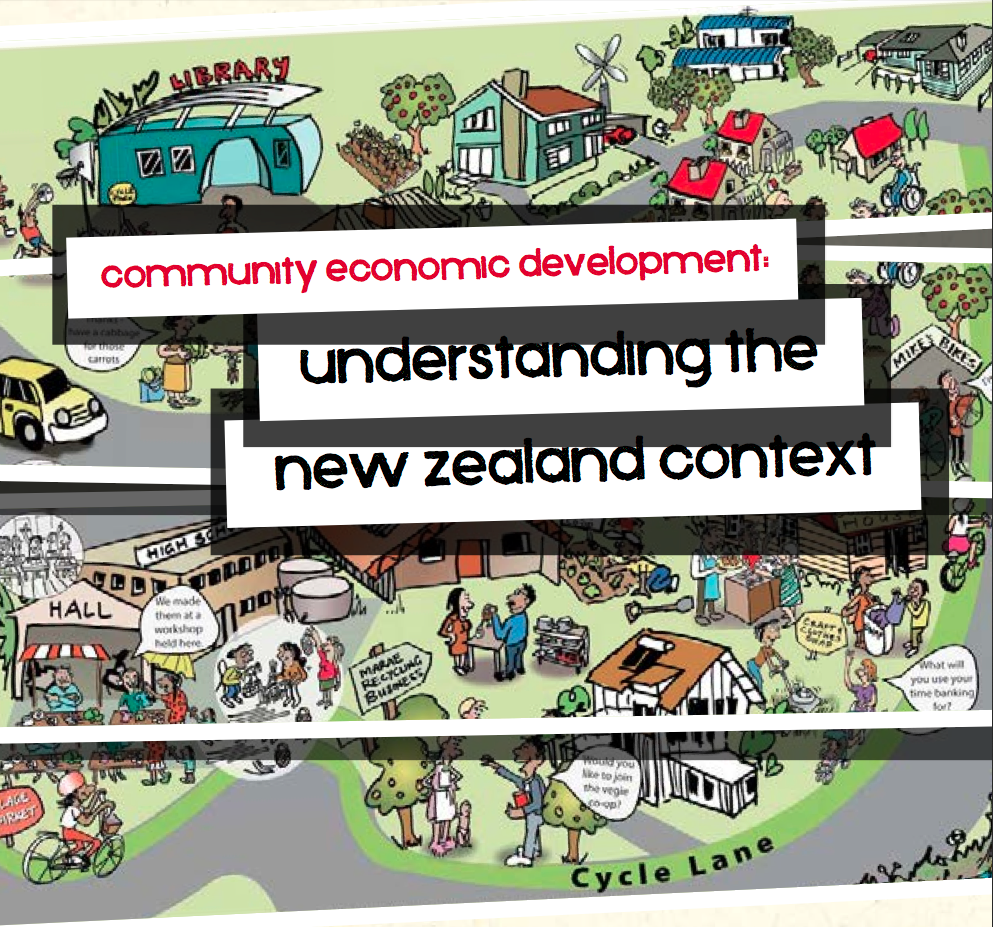Earlier this month, the New Zealand Community Economic Development Trust released Community Economic Development: Understanding the New Zealand Context, exploring the conceptual theory of CED and describing the realities of CED practice in the country.
Using the Canadian CED Network’s definition of CED, the author of the report sets the context both nationally and internationally for community economic development. The report explores key terms and their definitions and characteristics, theoretical approaches and their varying emphases on ‘community’, ‘economic’, and ‘development’, components of organizational governance and entrepreneurship within the field, and advancements in innovation and thinking in nonprofits. Importantly, the author also identifies 5 key attributes of successful CED initiatives, which are tested and, by and large, supported by the case studies laid out in the report. These 5 attributes of CED are:
- Creating strong and effective governance.
- Building close linkages to other complementary CED initiatives.
- Delivering core services in partnership with service users and purchasing organizations, rather than at arm’s length.
- Establishing a future-oriented internal culture.
- Establishing a consistent system of triple bottom line impact assessment.
The above propositions were tested and mainly confirmed through seven case studies. Establishing a consistent system of quadruple bottom line impact assessment was found to be the most challenging attribute to manifest.
Read more >>
Commissioned by the New Zealand Community Economic Development Trust this report is based on interviews with 97 social enterprise and CED practitioners and 5 focus groups, a national and international literature review, and 7 case studies.





